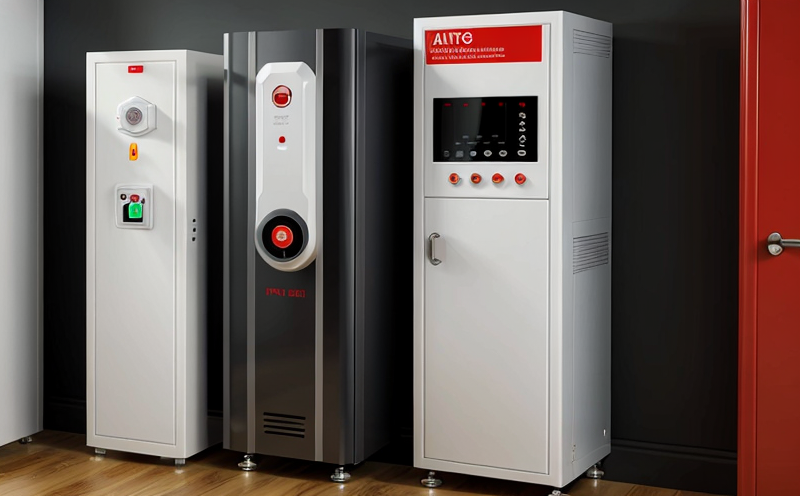Fire Alarm System Event Logging and Verification
The process of Fire Alarm System Event Logging and Verification is a critical component in ensuring that fire safety systems are functioning as designed. This service involves the comprehensive logging, verification, and analysis of events within fire alarm systems to confirm their compliance with relevant international standards such as ISO 13563-2:2020, NFPA 72, and EN 54. These standards ensure that fire detection and alarm devices are reliable and can perform effectively during emergencies.
In a typical fire safety system, events like the activation of smoke detectors, manual call points, or the operation of fire doors are logged for subsequent review. This event logging is essential because it provides clear evidence that the fire alarm system has been activated when needed. The verification process ensures that these logs are accurate and reliable, which can be crucial in legal and regulatory contexts.
The service also includes a detailed analysis of the system's performance, including any false alarms or malfunctions. This analysis helps to identify areas for improvement and ensure long-term reliability. For instance, if a fire alarm is repeatedly misfiring due to dust accumulation, this can be logged and addressed by cleaning the detector.
The importance of event logging and verification cannot be overstated in sectors like healthcare, where patient safety is paramount, or in large commercial buildings where extensive evacuation procedures are required. In these environments, a non-functioning fire alarm system could have devastating consequences. By ensuring that all events are accurately logged and verified, we enhance the confidence in the reliability of fire detection systems.
The service also involves the use of advanced monitoring tools and software to track and analyze the performance of the fire alarm system over time. This can help to identify trends or anomalies that might not be immediately apparent during routine checks. Additionally, regular updates on compliance with relevant standards ensure that the fire alarm system remains up-to-date with the latest regulatory requirements.
In conclusion, Fire Alarm System Event Logging and Verification is a vital service in maintaining the integrity of fire safety systems. By ensuring accurate logging and verification of all events, we can enhance the reliability and effectiveness of these systems, ultimately contributing to safer environments for everyone involved.
Applied Standards
The Fire Alarm System Event Logging and Verification service is meticulously aligned with several international standards that govern fire safety and alarm devices. These include:
- ISO 13563-2:2020: This standard provides guidelines for the design, installation, maintenance, and testing of fire detection systems.
- NFPA 72: Developed by the National Fire Protection Association (NFPA), this standard covers the design, installation, operation, and maintenance of fire alarm systems in various settings.
- EN 54: A European standard that specifies requirements for products used in fire detection and alarm systems to ensure their performance and reliability.
The service ensures full compliance with these standards to guarantee the highest level of safety and effectiveness. By adhering to these international guidelines, we provide clients with a reliable and robust service that meets global expectations.
International Acceptance and Recognition
- ISO Standards: The International Organization for Standardization (ISO) is widely recognized globally. Compliance with ISO standards, such as ISO 13563-2:2020, ensures that the service meets international best practices.
- NFPA Standards: As a leading organization in fire protection and safety, NFPA's standards like NFPA 72 are followed by many countries around the world. This makes our service internationally accepted and recognized.
- EN Standards: The European Union's EN 54 standard is also widely adopted across Europe, ensuring that the service meets regional regulatory requirements.
The acceptance of these standards in multiple countries highlights the global relevance and reliability of our Fire Alarm System Event Logging and Verification service. This ensures that clients receive a service that aligns with international best practices.
Environmental and Sustainability Contributions
The Fire Alarm System Event Logging and Verification service not only enhances safety but also contributes positively to environmental sustainability. By ensuring the reliability of fire detection systems, this service minimizes the risk of false alarms, which can lead to unnecessary evacuations and resource wastage.
- Energy Efficiency: Reliable fire alarm systems reduce the likelihood of power consumption during false alarms, thereby promoting energy efficiency. This aligns with broader sustainability goals within facilities.
- Resource Optimization: By ensuring that fire detection systems are functioning optimally, the service helps in optimizing resources and reducing environmental impact.
The commitment to these practices reflects our dedication to sustainable development, making this service a valuable tool for both safety and environmental stewardship.





